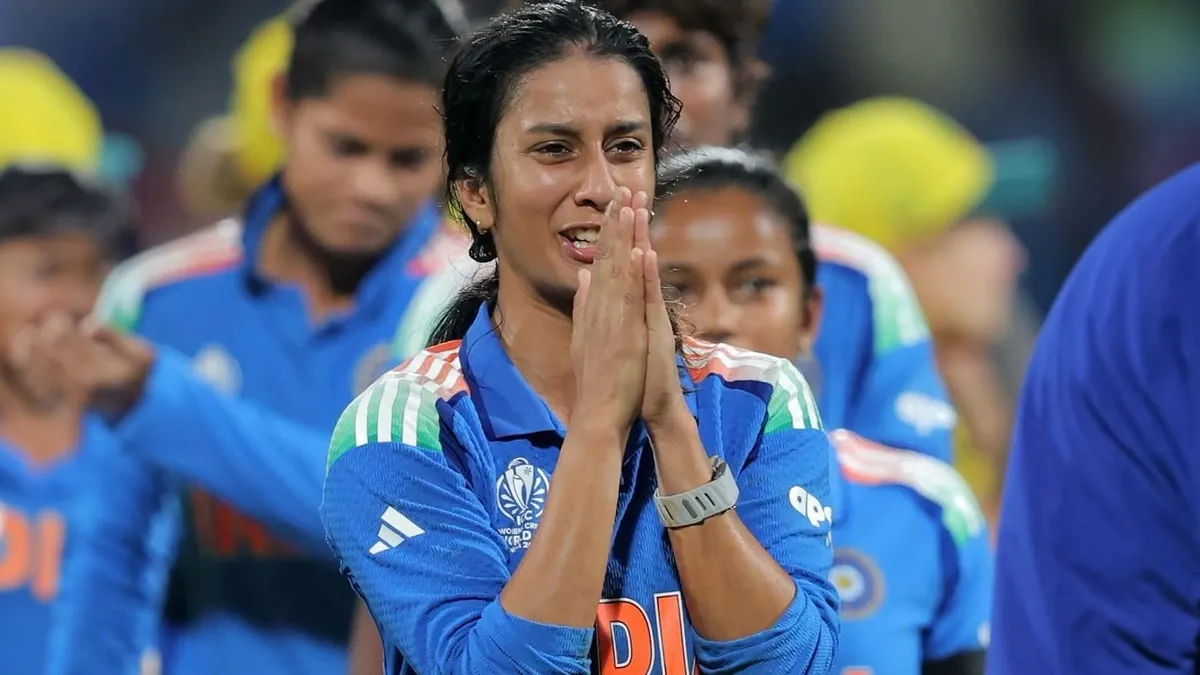
"I almost cried every day on this tour," confessed Jemimah Rodrigues, her voice still trembling with emotion after steering India into the final of the 2025 ICC Women's World Cup. Her breathtaking 127 off 134 deliveries against an Australian side that seemed untouchable, delivered before a thunderous capacity crowd at DY Patil Stadium, has already become the stuff of legend. This innings will dominate headlines, fuel countless debates, and inspire a generation of young cricketers across the nation.
But barely a week earlier, Jemimah's name appeared in those same headlines for entirely different reasons. She had become a lightning rod for criticism, mercilessly trolled for her performances. Two consecutive ducks against Sri Lanka and South Africa had painted her as a liability. The irony wasn't lost on those paying attention. India's greatest modern batter, Virat Kohli, had also registered two ducks recently, yet the vitriol directed at Jemimah was disproportionate and deeply gendered.
View this post on Instagram
In a society that thrives on schadenfreude, women athletes remain the softest targets. Following India's three consecutive defeats, the narrative turned toxic. Critics questioned whether the team deserved to exist, whether the BCCI's pay parity initiative was justified, and whether resources could be ‘better spent’ elsewhere. The underlying message was clear: women's cricket was an indulgence, not an investment.
Jemimah, with her vivacious personality and infectious joy, became a focal point for this cruelty. Those who've spent time around the Indian women's team speak of her as a bundle of energy, someone whose smile could transform cynicism into optimism. Yet this tournament nearly broke her spirit.
"Firstly, last year I was dropped from this World Cup," Jemimah revealed through barely contained tears. "This year I came and I thought, okay, I'll try. But things back-to-back just kept happening, and I couldn't control anything. I've almost cried every day throughout this tour. I was not doing well mentally, going through a lot of anxiety."
Even in her darkest moments, Jemimah remained true to herself. She trained relentlessly at the sidelines, driven by quiet determination. When given another chance against New Zealand, she responded with an unbeaten 76 off 55 balls. But the ultimate test awaited.
View this post on Instagram
Learning she'd bat at number three just five minutes before walking out, Jemimah didn't think about personal vindication. "It was not for me to prove a point," she insisted. "It was just for me to win this match for India because we've always lost in crunch situations."
What followed was extraordinary. India chased down 339 runs in 48.3 overs, not only their highest successful chase in women's ODIs but the highest in the format's history. They defeated Australia, who'd won their previous 15 World Cup matches, ending a dominance that seemed eternal.
Don't Miss: Who Is Kateřina Siniaková? Inside The Inspiring Career Of The Czech Tennis Champion
Harmanpreet Kaur, typically reserved with her emotions, wept openly as 35,000 fans erupted in celebration. "This time we have passed that line which we have been working hard for so many years," she said. "We are not playing alone, they are always with us."
Yet the question lingers: were they always there? There are two Indias, one that supports unconditionally, another that mocks relentlessly. India's men had recently lost an ODI series to Australia without facing similar vitriol.
Jemimah was once mocked for being ‘too active’ on social media, for laughing too loudly, for dancing too freely, for simply existing unapologetically. But as dawn broke over Navi Mumbai, she'd etched her name into cricket's golden history as the woman who carried India into their third Women's ODI World Cup final.
Her journey through this tournament reads like fiction: debut duck, subsequent struggles, being dropped for a crucial match, returning with vengeance, then delivering when it mattered most. Through it all, Smriti Mandhana mentored her, reminding her of her worth when the world seemed intent on forgetting it.
View this post on Instagram
When Amanjot struck the winning runs, Jemimah sank to her knees, tears streaming freely. Her teammates rushed to embrace her as DY Patil Stadium erupted. In that moment, every troll, every doubt, every cruel comment evaporated. What remained was pure, unfiltered redemption.
This wasn't just a cricket match, it was a statement against misogyny, against the voices that diminish women's achievements, against those who question whether they deserve a place at the table. The scoreline, had this been football, would read, Matriarchy 1-0 Misogyny.
India is called Bharat 'Mata' for a reason, and Navi Mumbai chanted 'Bharat Mata Ki Jai' in unison. Jemimah Rodrigues, the girl who turned trolling into fuel, had taken them there. And she did it by being unapologetically, gloriously herself.
Don't Miss: Who is Jemimah Rodrigues? Know About Her Cricket Journey, Family, Career, Stats, and More
Keep reading Herzindagi for more such stories.
Our aim is to provide accurate, safe and expert verified information through our articles and social media handles. The remedies, advice and tips mentioned here are for general information only. Please consult your expert before trying any kind of health, beauty, life hacks or astrology related tips. For any feedback or complaint, contact us at compliant_gro@jagrannewmedia.com.